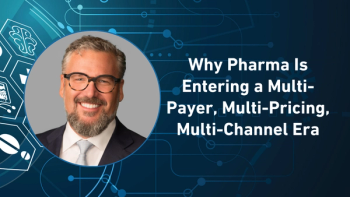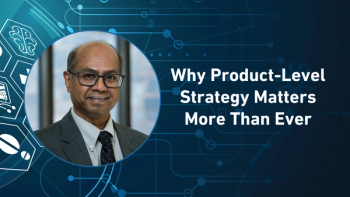
- Pharmaceutical Commerce - March/April 2014
The pharma rep profession will be immortal
New reasons why the announced death of this profession will always be premature
Our second annual
One of the odd things about hub services which came up (again) this year is that numerous companies in the field (at least as Pharmaceutical Commerce defines it) don’t like the phrase, preferring others such as “patient access” or “patient reimbursement support.” One magazine probably can’t set the terms of the debate for an entire industry, but here’s why we think “hub services” is both the appropriate one going forward, and why it should win out in the end.
A comprehensive hub services provider combines reimbursement support (which is where a lot of the services originated, as insurer formulary tiers, charitable patient-support foundations and co-insurance options multiplied in bewildering fashion over the past decade) with alternatives for obtaining the drug from specialty pharmacies, and with ensuring that necessary lab tests are conducted and determining how the drug will be administered—at an infusion center; at a hospital, with in-home delivery or other choices. For chronic care, ongoing patient support and tending to adherence programs are valuable. Some hubs expand their scope of services by handling the logistics of drug distribution—especially valuable for the ‘speed to therapy’ criterion of market access. Finally—and this is critical to the hub services model—data on treatment, outcomes and patient feedback are aggregated and delivered to the pharma company supporting the patient outreach.
There you have it. What does this have to with pharma reps? It turns out, according to our sources, that a knowledgeable, engaged rep is critical to the success of hub services. If a rep is not communicating the capabilities of the hub to office managers at physicians’ offices, or to P&T committees at managed care organizations, the phones don’t ring and the value of the hub is diminished. On their own, patients can attempt to locate these services—it’s their own health that’s at stake, after all—but while that might work for the well-informed and well-insured, a large portion of the potential market for a drug will be left out in the cold.
On the face of it, this situation is counterintuitive. Reps, by regulation, have many barriers to interacting with patients. “No see” physicians have little to do with reps at all. But who else is there that understands the problems healthcare providers have with specialty drug regimens on the one hand, and resources that can help the provider, and therefore the patients, on the other? Terms like “concierge” have been floated at various times to describe the evolving role of reps in today’s healthcare environment; whether reps will actually assume a role like that remains to be seen. But in the meantime—and for the foreseeable future—the pharma rep will be a critical element of pharma companies’ marketing efforts.
“The death of the pharma rep profession” is a headline I see over and over in the business press. The announcement, at the end of last year, that GlaxoSmithKline was realigning its sales force was just the latest generator of such headlines. Reps might feel that they’re on some version of that Mayan calendar that was supposed to signal the end of the world a couple years ago. But we’re still here, and so are pharma reps.
Articles in this issue
almost 12 years ago
Six factors driving new specialty pharmaciesalmost 12 years ago
Common misconceptions about the orphan drug designationalmost 12 years ago
AbbVie enters Asian manufacturing with a $320-million site in Singaporealmost 12 years ago
So you are 'in the cloud;' now what?almost 12 years ago
Network effect of industry-crowdsourced physician dataalmost 12 years ago
Make your CRM vendor a true partner to your sales teamalmost 12 years ago
New adverse-events reporting service speeds results to payersalmost 12 years ago
Acquisitions realign UK logistics services, cold chain packagingalmost 12 years ago
After a relatively flat year, 2014 could be big for pharma M&Aalmost 12 years ago
IMS Institute assesses social media for industry significanceNewsletter
Stay ahead in the life sciences industry with Pharmaceutical Commerce, the latest news, trends, and strategies in drug distribution, commercialization, and market access.



